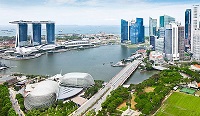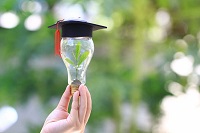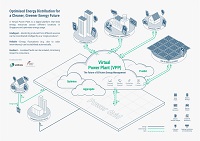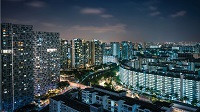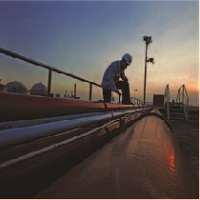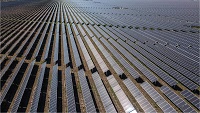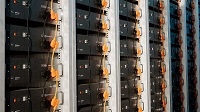Mr Rex Tillerson, Chairman and CEO, Exxon Mobil Corporation,
Mr Tang Kin Fei, Group President and CEO, Sembcorp Industries,
Mr Arthur Tay, Chairman and Group Managing Director, SUTL Group,
Distinguished guests,
Ladies and gentlemen,
Introduction
Let me extend a very warm welcome to all of you, especially our overseas guests, to this APEC CEO Summit Energy Dine Around. The Energy Market Authority is pleased to be co-hosting this dinner, supported by the US National Centre for APEC. We are also very happy to have with us distinguished energy leaders like Mr Rex Tillerson, who will be addressing us later, Dr Daniel Yergin, as well as many other policy-makers and industry chiefs from the APEC economies.
Energy Cooperation
The last year has been a difficult one. The global economy is now emerging from the crisis but it is also undergoing a structural shift. No one knows what will be the final outcome, but we can already see some of the outlines of things to come.
One major change is in the way we deal with energy. Increasingly, countries will have to look at energy issues not just from the traditional security and supply concerns, but also from the perspective of a carbon-constrained world, be it due to scarcer supplies of fossil fuels or a post-Kyoto regime to restrain carbon emissions.
There are no silver bullets to tackling the intertwined challenges of energy and climate change. No single city or country will have all the answers. Instead, we need closer collaboration to share experience and expertise, and develop pragmatic, workable solutions. Forums such as APEC and the APEC CEO Summit which gather both policy-makers and corporate leaders to tackle the common challenges facing our region play an important role in this process.
Singapore's Role
Singapore is committed to doing our part, and we are taking several steps to ensure a more sustainable energy future.
The first is to diversify our fuel mix. Today, more than 80 per cent of Singapore’s electricity is generated from natural gas supplied by Malaysia and Indonesia through pipelines. To diversify our gas supply sources, we are building our first liquefied natural gas or LNG import terminal, which is targeted to be ready by 2013.
Beyond LNG, there are practical challenges to fuel diversification due to our limited energy options. But we recognise that technology is steadily evolving. Energy solutions not viable for Singapore today may become viable in future. The government is therefore investing considerable sums to develop clean technologies like solar and biofuels. We are also actively looking at how we can be more efficient in the use of energy.
One idea being explored is clean transport solutions. In particular, we see great potential in electric vehicles, which are ideally suited for our compact urban setting, and which will be well supported by our robust electricity grid and IT infrastructure. We have therefore initiated a test-bedding programme, not just to roll out electric vehicles on our roads, but also to demonstrate and test new innovations like vehicle-to-grid technology.
Another area for innovation is smart grids. Singapore already has a high-quality power system, which is amongst the most reliable in the world. Nevertheless we believe there is scope to leverage on advanced communication and sensor technologies to further improve the capabilities of our power grid. This will enable energy providers and consumers to better manage peak demand, optimise the use of electricity, and also facilitate the integration of intermittent sources of power, be it solar PVs, mini co-generation plants or even electric vehicles.
Conclusion
This is just a very broad sketch of some of the things we are doing in Singapore. We are undertaking these initiatives not just to address our own energy challenges, but also to make Singapore a "living laboratory" for companies to experiment and adapt urban solutions for use around the world.
This is why EMA is organising the Singapore International Energy Week, which will be held next Monday at the Shangri-La Hotel. I hope many of you will be able to stay on after the Summit to join us for the Energy Week. Through this event, we hope to foster greater interaction and exchange of ideas, and provide an Asian perspective in shaping the energy debate.
Finally, may I say once again how delighted we are to have so many distinguished delegates coming together to discuss the pressing energy issues of our time, especially in this lovely setting at One Degree 15 Marina Club. I wish you all a rewarding time for the rest of the Summit and a very memorable stay in Singapore.
